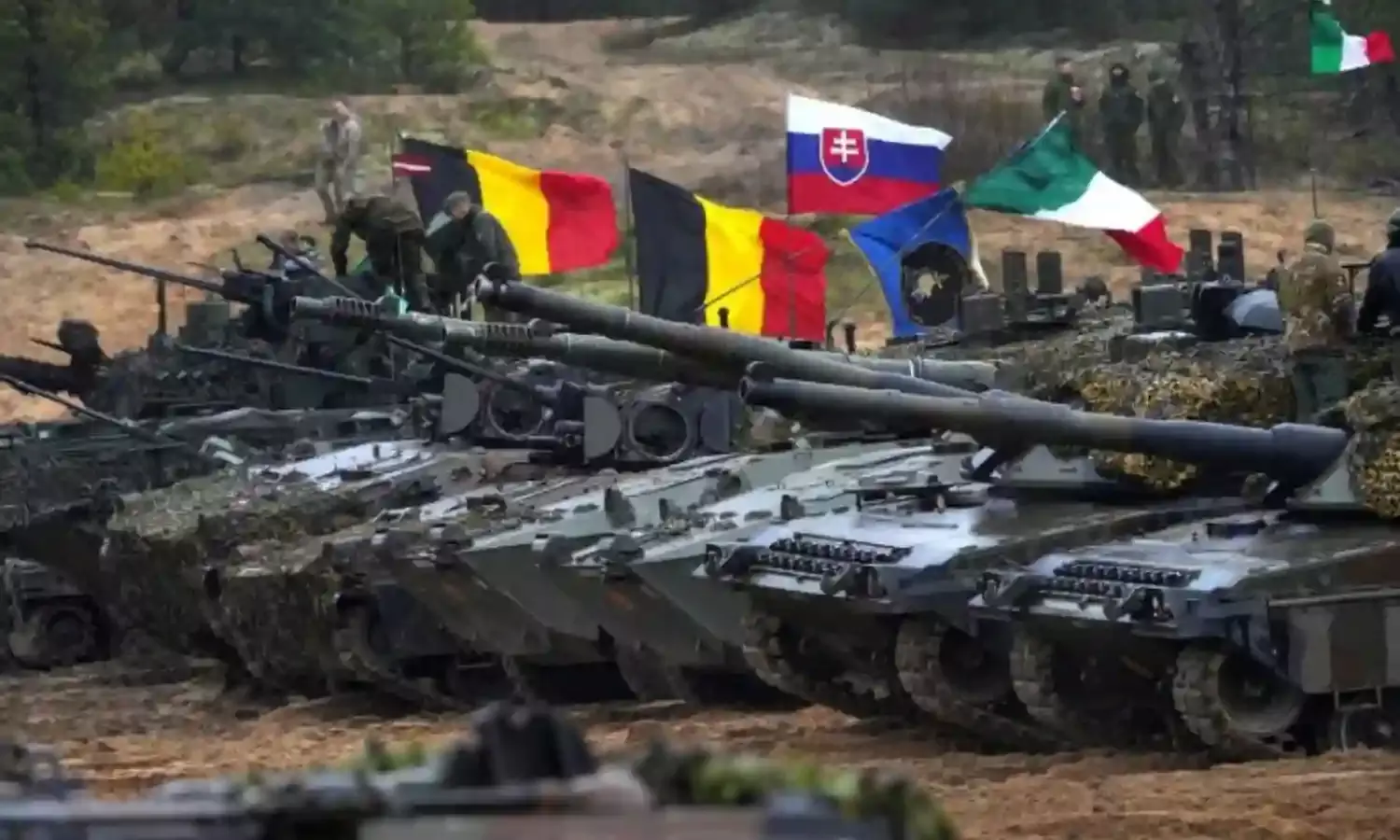Give Peace A Chance
Humanity needs a completely different peace and security system

The world’s taxpayers pay US $ 2240 billion annually to their national military defence. That is the highest ever and more than 600 times the regular budget of the United Nations, three times the total trade between China and the United States. Such are the perverse priorities of our governments; the five largest spenders are the US 39% of the total, China 13%, Russia 3,9%, India 3,6% and Saudi Arabia 3,1%.
Worldwide, governments maintain that they need that much to secure their people’s survival, national defence, security and stability, and that global peace will come.
With the exception of the elites of the Military-Industrial-Media-Academic Complexes (MIMAC), we all know this is one big fallacy. Today’s world is at a higher risk of war, including nuclear war, more unstable and militaristic than at any time since 1945.
At the end of the West’s Cold War a good 30 years ago, peace became a manifest possibility, NATO could have been dismantled since its raison d’etre, the Soviet Union and the Warsaw Pact, fell apart. A new transatlantic common security and peace system could have replaced NATO.
Tragically, ‘defensive’ NATO did everything not only to cheat Russia with its promise to not expand NATO ‘one inch’ but also to expand up to the border of Russia, “not one inch off limit for the alliance” to quite Marie Sarotte’s brilliant 550-page book, ‘Not One Inch’.
The NATO world now postulates that both Russia and China are threats to be met with even higher, de facto limitless, military expenditures.
But wait! How would you think and act if you witnessed a team of doctors do one surgery after the other on a patient who, for each, came closer to death?
You’d probably say: They are quack doctors. Their diagnosis and treatment lead to a devastating prognosis. Instead of health, they produce more of the problems they should solve!
Given that history’s highest investment in peace and security has caused the highest risk to humanity’s survival, why don’t we have a vibrant global debate? What is fundamentally wrong with the entire paradigm of security through arms? Where are the critical analyses of the world’s most enigmatic and dangerous logical short circuit?
The dominant security paradigm builds on factors like these:
- Deterrence: we shall harm them if they do something we won’t accept or don’t do as we say;
- Offensiveness: our defence is directed at them even thousand of kilometres away, not on our own territory;
- Military means are all-dominant;
- Civil means: like minimising society’s vulnerability; civil defence, nonviolent people’s defence, cooperation refusal, boycott - are hardly discussed;
- Our intentions are noble and peaceful, but theirs are not;
- Our defence is not a threat to them, but they threaten us all the time;
- Ignoring the underlying conflicts that cause violence and war, and are the keys to conflict-resolution, and prepare instead for war to achieve peace.
This is, by and large, how everybody ‘thinks’, and then they blame others for the fact that this type of thinking can not produce disarmament nor peace.
Even worse, when that peace doesn’t come, everybody concludes that they need more and better weapons! In reality, this system is the perpetuum mobile of the world’s tragic militarism and squandering of resources desperately needed to solve humanity’s problems.
There must be better ways to think. But there is far too little research and debate and the MIMAC elites thrive from war. Thus, decision-makers lack political will.
What would be the criteria for good peace and security? That conflicts are addressed and solved intelligently by mediation, international law, and creative visions that address the parties fears and wishes.
Violent means should be the absolutely last resort as is stated by the United Nations. Peace is about reducing all kinds of violence (and there are many) and creating security for all at the lowest military level, like the doctor who shall never incur more pain than necessary to heal a patient.
Here some alternative ideas and thinking, not fixed but to promote discussion:
- Instead of deterrence, seek cooperation and common security - the latter means that we feel secure when they do;
- Go for being invincible in defence but unable to attack anybody else - have weapons with limited destruction capacity and range;
- Make control/occupation impossible by our country’s non-cooperation with any occupier;
- Balance defensive military and civilian means;
- Prevent violence but not conflicts;
- Never do tit-for-tat escalation; do something creative to de-escalate;
- Show that your intentions are non-threatening and take small steps to invite Graduated Reduction In Tension (GRIT) without risking your own security;
- Handle conflicts early; build peace first and then secure it;
- Address underlying conflicts, traumas, fears and interests;
- Educate and use professionals in civilian conflict-resolution and mediation, not only military expertise;
- Develop and nurture a peace culture through education at all levels, ministries for peace, emphasis on conflict-resolution instead of confrontation and re-armament;
- Replace outdated neighbourhood ethics with a global ethics of care.
There are limitless possibilities. Conflict and peace illiteracy have brought us where we are today. It has nothing to do with whether or not human beings are evil or good, or both. It is a systemic-paradigmatic malfunction that must change in the name of civilisation.
We can learn peace. Masters of war are hated worldwide. The country that takes concrete leadership in developing new principles and policies for true global peace and human security will save humanity and be loved forever.
Let a thousand peace ideas bloom!
Jan Oberg, PhD, is the Director of the Transnational Foundation for Peace and Future Research, TFF, in Sweden. Views expressed are the writer’s own.



